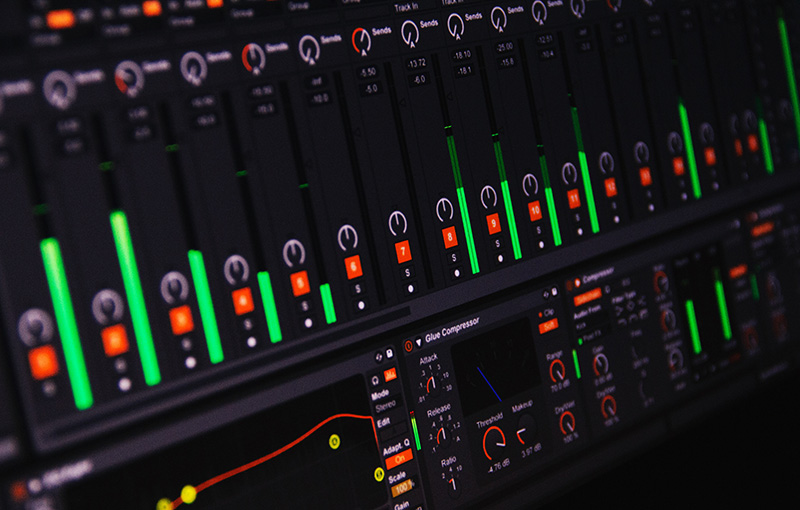How Music Royalties work in the Music Industry
Collecting your music royalties isn’t easy; if you look into the process, it’s very complicated. In this article, you’ll know how you can get paid for your music and how music royalties work. We’ve gathered all the information on the music royalties’ complexities.
What are Music Royalties?
Music royalties are the payment that you receive as the owner of your song. The songwriters, artists, composer and other right holders receive the music royalties.
Music artists get their royalties through the sale of their music creations. The music royalties come from different music platforms. There are four types when it comes to royalties include:
- Print music
- Mechanical
- Synchronization
- Public performance
All types of royalties generate according to their context of use. The process for each royalties is different. Each country’s payout process also influences the function of royalties.
4 Types of Music Royalties
Below we will discuss some of the types of royalties:
1. Print Music
Print royalties are one of the least common royalties these days. It’s generates from copyrighted music. The music comes in a printed form such as sheet music.
This music royalty was quite famous back in the 20th century—this royalty work when the music distribution happens in the form of a print piece.
The fees paid by the copyright holder is based on the total number of copies made of the printed piece of music.
2. Mechanical Music Royalties
When the copyrighted music gets reproduced, it generates mechanical music royalty. It means producing music in the form of CD’s and vinyl and so on.
The mechanical collection societies collect mechanical royalties. The organizations collect the royalties and pay them to music producers and songwriters.
If you’re a person who is a songwriter and also selling your song, you get all the mechanical royalties. A record label usually pays royalties if you’re signed under a label.
But, if you’re an independent artist, your music distribution company will pay you.
3. Sync Music Royalties
A song used as content in any other visual media generates the synchronization royalty. Music publisher companies sold out the sync licenses.
A person who owns the sync license can use the copyrighted music in commercials, TV series, and films. The sync license does not allow the use of existing recording with other AV media, e.g. in a YouTube video.
For using the copyrighted music with AV media, the license holder needs a master license. It’s like an agreement between the license holder and the record label.
Even it’s a full song or a small part of a piece you need to have permission before using it. The consent includes both the sync and master agreement from the record label.
4. Public Performance Royalties
Public performance royalties generate with the general performance of a song. It means that if radio plays the copyrighted music or a public gathering plays it—the royalties generated through radio or the hosts of public group.
You often heard a song is playing over your head at the shopping malls or in the bars and café. These are all included in the public performance royalties.
When you sign for digital distribution, you also register your song with PROs. Through PROs, you can keep a track where your music is playing, and you can make some bucks.
A song used for a remix version or a cover the artist and the songwriters get paid—these royalties generated through PROs (Performance Right Organization).
To get your 100% royalties you have to register yourself as both the writer and publisher of the song. If you don’t do this, your royalties will split into 50/50 between songwriter and the publisher.
Types of Music Rights/ Copyrights
Music royalties is a complex subject, and there are two types of music copyrights:
1. Master Rights
An original song used for distribution or reproduction called the master recording. Master rights belong to the artist, record labels, recording studios. Master rights also belonged to the person who finances the music recording.
2. Publishing Rights
Publishing writers belong to the songwriters and the publishers who own the copyrights. The copyrighters own the copyrights for lyrics, chords, rhythms used for reproduction.
Who gets the Music Royalties?
Many parties hold a share when it comes to music royalties. From songwriters to music distribution companies, everybody owns a stake.
- Songwriters receive the royalties on the usage of their songs. The royalties can include sync, performance or mechanical royalties.
- Record labels help the artist to distribute and market their work for the audience. Labels generate income through mechanical and public performances. Record labels hold master rights for a song.
- Distribution companies showcase the music of artist on different music platforms.
- The digital distributors collect royalties in the form of a percentage or a flat fee. The platforms include Spotify, sound cloud, and google music and so on.
- Performance Rights Organization also collects the royalties on behalf of the songwriters. This organization takes the money when the song of the artist plays in a shopping mall or a café.
- Performing artist are people who perform the songs of the original artist on a show or publicly. Artist doesn’t own any rights in the publishing of a piece. Performing artist perform the copyrighted music publicly that generates royalties. The PROs often collect these royalties for the music artist.
Conclusion
These royalties generate through different copyrights usage of the music. Music artists have to rely on various sources of generating royalties. These sources of generating royalties help the artist to succeed in the field.
Many royalty streams are emerging to provide a better revenue system. We know that it can be quite hard to learn all the complexities of how royalties work.
We’ve jotted down this list to help you know how it all works. This guide will tell you how the royalty stream organization works in generating royalties.
If you have any questions or suggestions feel free to contact us.



